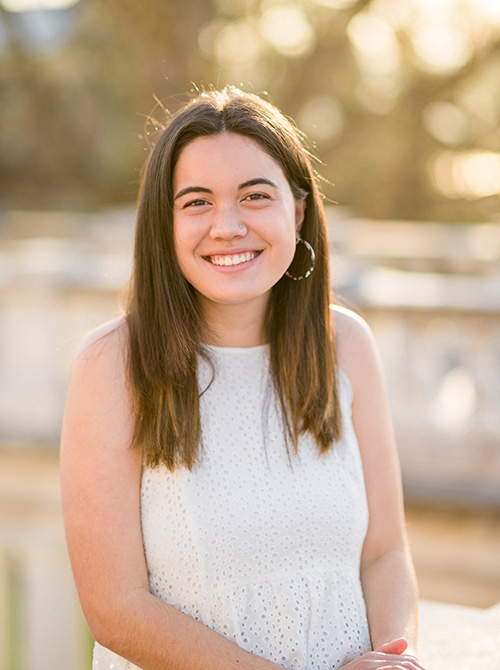by Malia Sample (she/her/hers), 2021 Undergraduate Summer Research Fellow in Lived Theology
My past few weeks working with the Project on Lived Theology have been incredible and transformative. The essays and books I have read, the weekly discussions I have had with my project mentor, Dr. Paul Jones, and the conversations I have engaged in with peers, housemates, and friends about what I have been learning have all taught me so much and have altered how I see and understand what it means to live theologically—and what this may look like for me personally in the Christian faith. Hearing the voices, experiences, and perspectives of Black theologians and activists on racial injustice and inequity has expanded and changed how I view the Kingdom of God and what it means to be the body of Christ.
This week, as I begin book number seven of the eight that I am reading for my research, I am filled with immense gratitude for the opportunity that I have had to learn and listen over these past few weeks. The way I see the divine action of a God who I believe is just and loving—and the way I see my existence and role in that action—has been challenged and changed by the works I have read and the conversations I have had. My time with the Project on Lived Theology has made me question and think more deeply and wholly about what it means to love God with your whole heart, soul, and mind, and to love thy neighbor as thyself amidst racism and racial injustice, which are incongruent with God’s heart and His intention for His creation. A major lens through which I have been trying to look at these questions has been by seeing the church as the body of Christ.
As a kinesiology major, I love thinking of the church as an anatomical body because through the different organ systems, muscle groups, and modes of communication (electrical, chemical, etc.) of the body, I think the beauty and complexity of what it means to be God’s church can be seen more clearly and in greater depth. This lens has also helped me to visualize what unity in the church really looks like. It has helped me see the importance of difference in unity. Uniformity does not make a body complete. If every cell in the body was the same, the body would not be able to function. The body would not be a body. I think that in many situations, difference—and from that, disagreement—can often be seen as the opponent of unity in the church. However, what if difference and disagreement are not the opposite of unity? What if they are instead what makes being a body possible? M. Shawn Copeland’s novel Enfleshing Freedom: Body, Race, and Being helped me think about unity in the body of Christ by shifting my mind to the idea, and to the importance, of solidarity. Prior to this summer, I think I sometimes fell into thinking of solidarity as a negotiable “add-on”—or addition—to being the body of Christ. However, I have realized that solidarity is actually central to unity. And not only is it central, but it is also not a choice.
“Now if the foot should say, ‘Because I am not a hand, I do not belong to the body,’ it would not for that reason stop being part of the body.”
(1 Corinthians 12:15)
The foot does not get to choose whether or not it is part of the same body as the hand. Even if the foot does not want to be related to the hand, it is; it cannot stop being part of the body. Solidarity has been chosen for the foot and the hand. They are unified by genes that they cannot change. Therefore, solidarity is not a choice. What is a choice, however, is how will this unified body respond to difference? To disagreement? To the suffering of a part of the body that results from difference?
“If one part [of the body] suffers, every part suffers with it; if one part is honored, every part rejoices with it.” (1 Corinthians 12:26)
When the foot does not recognize the suffering of the hand, the body still suffers. And it is not just the hand that suffers; the body is not able to heal, and the sickness spreads. The pain in a part of the body is the whole body’s pain. The body is already connected. The suffering is already shared, whether or not we realize it. Therefore, the body must decide whether or not to recognize that any suffering is shared suffering and that any suffering in the body affects the entire body. The body must decide to choose life and solidarity. There is no other option for Christ’s body. Mutual growth, mutual freedom, and mutual healing are the only options.
Read Malia’s first blog post here.
Learn more about the 2021 Undergraduate Summer Research Fellowship in Lived Theology here.
The Project on Lived Theology at the University of Virginia is a research initiative, whose mission is to study the social consequences of theological ideas for the sake of a more just and compassionate world.

